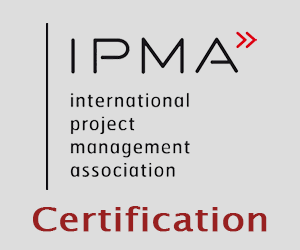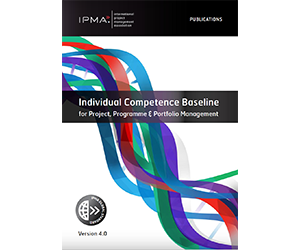
So you want to get certified as a project manager.
The International Project Management Association (IPMA) maintains one of the three main project management certification schemes in the world.
If IPMA is the route you wish to pursue, you must choose between four levels in the IPMA scheme:
- Level A (IPMA-A): Program manager, or a manager of multiple projects. This is effectively not a “project manager” certification in its strict sense, but we include it here for completeness.
- Level B (IPMA-B): Manager of larger, or complex, projects which require significant application of project management principles.
- Level C (IPMA-C): Manager of smaller projects for which stakeholder relationships are usually more important than strict adherence to project management fundamentals. As of 2014, there were 65,000 certifications in levels B and C (total).
- Level D (IPMA-D): Project management associate, has passed the certification exams but does not have the required project management experience. There are about 175,000 certifications worldwide.
In summary, if you don’t have project management experience, you need to start with level D. If you are already a project manager, you would pursue either level B or C, which will be decided based upon what types of projects you manage: Level C for small projects or Level B for larger, more complex projects.
Structure of the IPMA
The IPMA is the global organization that develops the standards. The certification process itself is managed by member (country) associations. It is these member associations that preside over the certification process, therefore you need to find the association in your country and determine the requirements directly from them. Because those requirements change from country to country we cannot give you exact details that apply in every country.
In fact, even the designations themselves change, for example, in Canada the IPMA Level D certification is called Certified Project Management Associate (CPMA). Thus, I will outline the main IPMA specifications in this article but most of the content below is subject to change from country to country.
Education Requirements
There are no background education requirements of any of the IPMA certifications. That is, a university degree or college diploma are not required for certification.
There is also no requirement for project management courses, or IPMA courses, prior to writing the exam. That being said, most people take some form of course prior to the exam.
The exam material is taken from IPMA’s Individual Competence Baseline. This manual identifies 29 competence elements, divided into the three categories: Perspective, People, and Practice.
Experience Requirements
 Some of the IPMA certifications require previous experience in project management:
Some of the IPMA certifications require previous experience in project management:
- Level A: You must have 60 months (5 years) of portfolio and/or program management experience, and it must have strategic relevance. That means you must have been responsible for a suite of projects, not a project manager on individual projects. A minimum of 36 months (3 years) of this must be in a “responsible leadership function in complex portfolios or programmes.” The 60 months of experience must have occurred within the last 8 years.
- Level B: You must have 5 years of project management experience, obtained within the last 8 years. 3 of the 5 years must have been in a leadership position in the management of complex projects (or one large complex project). The other 2 out of 5 years must have been in a project management role of any kind.
- Level C: You must have 3 years of experience a leadership position in project management, obtained within the last 6 years.
- Level D: There are no experience requirements for Level D.
Other Requirements
The following requirements tend to vary quite a bit from country to country, but I will describe IPMA’s core requirements.
All of the IPMA certification levels require a “self-assessment” using the 29 competence elements within the Individual Competence Baseline. This involves a 0-4 rating on elements like:
“P1.2.1. Know the principles of project management and the way they are implemented.”
You can give yourself excellent marks and IPMA won’t withhold the exam. But if you wish to reap the benefits of the exercise (and study for the exam) you will need to learn the knowledge behind the elements and should attempt to score yourself realistically.
To demonstrate project management knowledge and experience, Levels B and C require a written assessment which outlines your responsibilities on a real project or projects, as well as decisions that were made that affected the project outcome. For level B, it should be 3 – 5 pages long and the project must meet minimum complexity ratings.
For level C, a one day workshop is required after the exam, which consists of practical project management exercises. For level B, a 15 – 25 page report must be prepared which outlines the project management processes and tools you have used on actual projects, and provides an analysis of their results.
Also, an assessor will visit your place of work to confirm the roles and responsibilities are appropriate for project management. For level C, any project management role is adequate, but for level B, it is important to be in a decision making role for a large, complex project (or multiple projects).
In most countries, Level A requires a project report which outlines the projects you have been involved in. However, since level A is not strictly a project management certification (and there are very few actual level A certifications worldwide) the requirements are not easily summarized and I will not go into further detail here.
Official Textbook
 The official textbook is called the IPMA Individual Competence Baseline (ICB). This book is available free from the IPMA’s website.
The official textbook is called the IPMA Individual Competence Baseline (ICB). This book is available free from the IPMA’s website.
Cost
Once again, the cost varies greatly from country to country because the IPMA is merely the standards body and does not administer the certification process. However, I’ll present some guidance here.
For level D, you simply submit an application and write the exam. In the United States, the application fee is $300.
For levels B and C, the cost for the initial application is $195 (in the United States). Once the exam is passed, a fee for the remaining portion applies. For level C, this fee is $1,295 which will cover the workshop and site assessment by an assessor. For level B, a fee of $1,595 will cover the project report and on site interview.
For level A, the original application fee is, again, $195. The subsequent site assessment is $1,795.
These fees may, of course, have changed since the time of publication.
Maintenance
All of the IPMA certifications are valid for 5 years. After this time, the following tasks must be performed to keep the certification in good standing:
- Level A: An application for re-certification must be submitted, and the re-assessment fee is $395. An assessor will visit your place of work and confirm your assessment.
- Level B: An application for re-certification must be submitted, which includes the same requirements as Level C.
- Level C: An application for re-certification must be submitted, which includes another self-assessment as well as evidence of continuing professional development. This can include courses, presentations, and/or active involvement in project management. If any weakness exists in any area, the IPMA may requirement another interview by an assessor. The re-certification fee is $395.
- Level D: Another self-assessment must be submitted, and the re-assessment fee is $300 (in the United States).
Equivalents
There are three main project management certification bodies in the world today. The choice of certification depends heavily on where in the world you are located, and what has the highest reputation among your peers in your industry.
It is impossible to call any of these certification exactly equivalent. They each have different requirements and different reputations within different industries and geographical areas. Nonetheless, the equivalents from the Project Management Institute (PMI) and PRINCE2 are.
| IPMA | PMI | PRINCE2 |
|---|---|---|
| Level A | PgMP | MSP Practitioner |
| Level B | PMP | PRINCE2 Practitioner |
| Level C | PMP | PRINCE2 Practitioner |
| Level D | CAPM | PRINCE2 Foundation |
Level A is a program manager (manager of multiple projects). Levels B and C are for project managers, and Level D is a project manager ‘associate’ certification. Note that IPMA is the only one that subdivides project management certification into major and minor projects (levels B and C).
Conclusion
Good luck on your IPMA certification, and let us all know in the comments what tips and tricks you’ve discovered, and issues you encountered.






